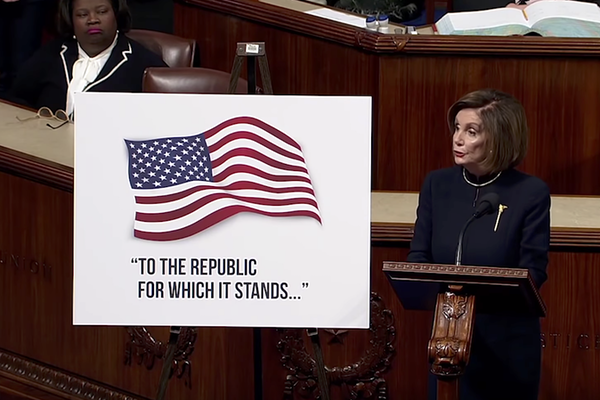Impeachment and the Electoral College

In 1956, a young Senator John F. Kennedy made his now famous speech defending the Electoral College. In the manner of Mr. Smith goes to Washington, he valiantly declared before the U.S. Senate that abrogating the Electoral College would “would break down the federal system under which most states entered the union, which provides a system of checks and balances to insure that no area or group shall obtain too much power.”
Even more important, the future president recognized that the key provisions of the Constitution represent a “whole solar system of government power. If it is proposed to change the balance of power of one of the elements of the solar system, it is necessary to consider the others.”
As Kennedy recognized, provisions such as those relating to impeachment cannot be considered in a vacuum, but must be considered in relation to all the other elements of the solar system of government power. For that reason, application of Article II’s grounds for presidential impeachment — high crimes and misdemeanors — must be considered in the context of all other constitutional provisions relating to government power.
The greatest fear of the Framers was concentration of power in one branch of government that might overpower and abuse the other branches. It was for this reason that the framers’ firmly rejected the unitary parliamentary model of Great Britain, since it gave one branch — the legislative branch — undue power over the executive branch by giving parliament the power not only to select an executive leader, but also to dismiss that leader virtually at will — thus making the executive branch ‘beholden’ to that legislature. (One has only to look at unstable ‘coalition’ governments around the world to appreciate the Framer’s rejection of a unitary parliament).
It was the Framers’ great vision of separation of powers to create two separate parliaments: the first to enact legislation (Congress); and an entirely separate parliament, elected by the people, whose only duty was to elect the executive leader (an Electoral College). Only in such a way could the true goal of separation of powers be achieved.
It was this element of the ‘Grand Compromise’ which united in one country not only the small states, which demanded a Congress based on the principle of “one state, one vote” (the Senate), large states which demanded representation based on “one person, one vote” (the House), and other states which demanded an entirely separate parliament (the Electoral College) based on the number of representatives each state was entitled to in both the Senate and the House.
It remained only to reconcile those who demanded that Congress be given the same power over the executive as enjoyed by the British Parliament, with those who believed in an executive with powers equal to—though not superior to—those given to Congress. Though Alexander might be grouped with the former, professing his opinion in Federalist 68 that a majority in Congress be given partisan power to remove the executive simply for “maladministration,” Madison is placed in the latter group who believed that the principle of separation of powers required a much higher, non-partisan standard for removal. In the end, a compromise was reached, giving Congress the power to remove, but only on the much higher standard of an actual ‘High Crim(e) and Misdemeanor.”
Although legal definitions and vocabulary of the law has changed since 1789, the closest modern legal term for ‘High Crime’ is a felony. For example, in most jurisdictions, perjury is a felony, but “maladministration’, or even incompetent or over-reaching abuse of power is not — e.g. Truman’s unconstitutional seizure of steel mills without due process was deemed not impeachable, nor was President Roosevelt’s herding of innocent citizens into internment camps without due process of law. Likewise, it is not a criminal “obstruction of justice” or a “high crime” for a defense lawyer to simply assert the lawyer-client privilege on behalf of a client, at least until the judiciary branch rules on that assertion.
In 1868, the country dodged a bullet when by a narrow margin Congress declined to impeach a palpably inept and incompetent president on the flimsy “abuse of power” pretext of firing a cabinet member without authority, which would have set a future precedent for disrupting the Framer’s delicate balance and separation of powers along purely partisan lines.